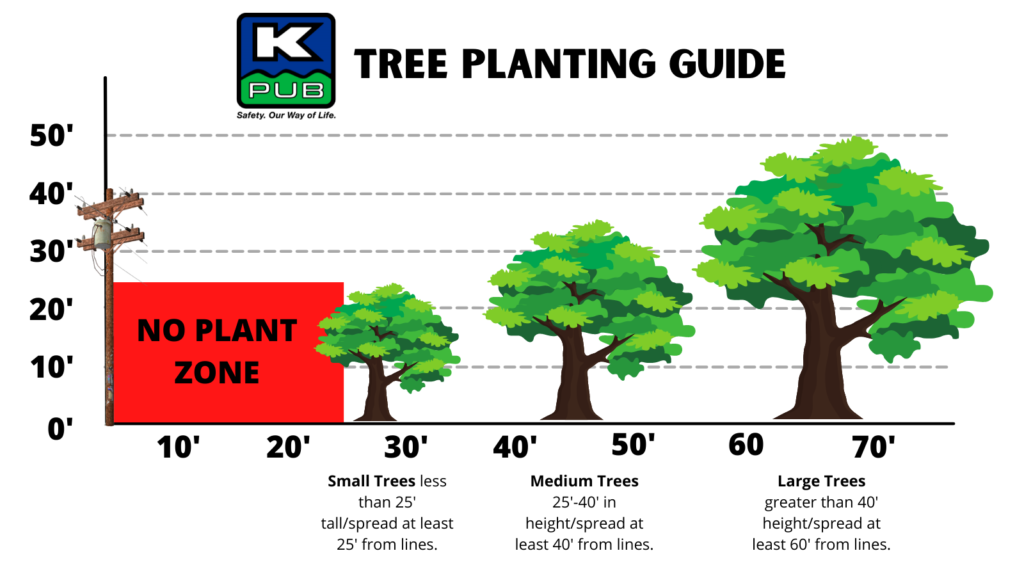Landscaping and Planting
Safety extends beyond the electricity you use in your home. Anything involving trees, planting, or digging can be dangerous as well. Be mindful of the following electrical safety information when out in your yard,
Climbing
- Never climb a utility pole or a tree that is near electrical wires.
- Keep ladders and other objects away from electrical lines
Trees and Power Line Safety
- Do not allow children to climb or play in any tree located near a power line.
- Electricity can jump from the power lines to your body, tools, or other branches, causing serious injuries or death.
- Electric wires may be concealed in the trees or shrubs you want to trim. Before you trim trees or shrubs, inspect the area carefully to ensure that it’s clear of wires.
- Especially during damp weather, electrical shock can occur when a person touches a tree that is touching a wire. It is not necessary to actually touch the wire itself to sustain a serious or even fatal electric shock.
- Trimming tree near power lines or other electrical equipment is dangerous and should always be done by a professional. Click here to learn more about tree trimming options with KPUB.
Landscaping and Planting
Trees, bushes, or plants, regardless of size, should not be allowed to grow directly under electrical lines and equipment.
Before you plant a tree, consider the size of the tree at maturity.
- Small trees that are less than 25 feet at maturity should be planted at least 25 feet from the pole.
- Medium trees between 25 feet to 40 feet at maturity should be planted at least 40 feet from the pole.
- Large trees that are 60 feet or more at maturity should be planted at least 60 feet away from the pole.
- Additional information about planting the right tree in the right place, provided by SafeElectricity.org
Digging & Construction
The current building trend is to bury utilities underground. Therefore, you must be cautious when digging on your property. Utilities, such as electric, gas, communications, water and sewer, may be buried on your property. Contact with these lines can lead to a serious injury—even death.
Call 8-1-1 Before You Dig
State Law Requires Notification
- There is a state law in place that requires all persons, digging 16 inches or deeper, to call a notification center. The call must be at least 48 hours prior to digging.
- Notification centers will then contact the utility companies, who will then go out and mark the underground utilities.
- Call Before You Dig is a free service that locates your underground utilities.
- In Texas, you can call the DIGTESS notification center at 8-1-1 or visit their website at digtess.com. Stay safe, and call 8-1-1 before you dig!
If You Hit a Utility Line When Digging
- Discontinue excavation and call 8-1-1 immediately to report the hit.
- If the hit results in a power outage, call 830.257.2883 to report it.
- Tall and long tools and equipment such as ladders, rakes, and dump truck beds can reach heights close to or above energized power lines. Tools and equipment coming into contact with power lines can cause outages, serious injuries such as burns and shock, and death.
- If heavy equipment that is capable of coming within 10 feet of electrical lines is being used, state law requires you to contact KPUB at least two days in advance. We will show and inform you on how to avoid contact with power lines and other electrical equipment.
- If you plan to dig more than 16 inches or deeper, state law requires you to call 8-1-1 and submit your location to them. This will allow them to locate any underground utility lines and help you to avoid them.

